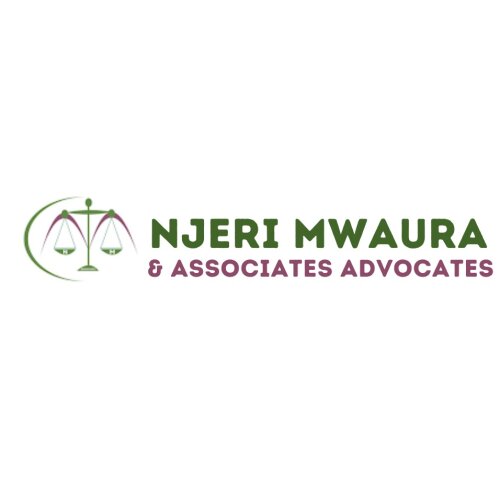Best Mortgage Lawyers in Ruiru
Share your needs with us, get contacted by law firms.
Free. Takes 2 min.
Free Guide to Hiring a Real Estate Lawyer
List of the best lawyers in Ruiru, Kenya
About Mortgage Law in Ruiru, Kenya
Mortgage law in Ruiru, Kenya, is largely influenced by the principles of Kenyan property law. A mortgage in Kenya involves a borrower obtaining finance from a lender, usually a bank, with the borrower’s property being used as security for the loan. The Kenyan Land Act and the Land Registration Act are the primary legislations that govern mortgage transactions in Kenya. These laws ensure that the mortgage process, from application to foreclosure, is regulated and that the rights of both the lender and borrower are protected.
Why You May Need a Lawyer
Legal assistance often becomes imperative in mortgage transactions for several reasons. Lawyers can help borrowers understand complex financial terms, protect their interests during contract negotiations, and ensure legal compliance with Kenyan mortgage laws. Additionally, in the case of disputes or risk of foreclosure, a lawyer can provide representation and legal advice to help resolve these issues. Common situations where legal help may be needed include assessing contract terms, resolving disputes with lenders, managing foreclosure processes, and advising on refinancing options.
Local Laws Overview
In Ruiru, Kenya, mortgage transactions must adhere to the provisions of the Kenyan Land Act and Land Registration Act, among others. Key aspects include:
- Consent from the Land Control Board is required for the mortgage of agricultural land.
- All mortgage agreements need to be in writing and registered with the respective land registry to be enforceable.
- Borrowers have the right to redeem the mortgage upon fulfillment of all the conditions stipulated in the mortgage contract.
- Lenders have a right to foreclose on the mortgaged property if there's a default in payment in accordance with the contractual agreement.
- Procedures for foreclosure including notices and redemption periods are strictly governed by law to protect the interests of the borrower.
Frequently Asked Questions
1. What are the eligibility criteria for obtaining a mortgage in Ruiru?
Generally, to be eligible for a mortgage, borrowers must be over 18 years old, have a stable income, and the property intended for mortgage should have a clean and valid title deed.
2. What is the maximum loan to value (LTV) ratio allowed for mortgages?
The LTV ratio varies among lenders but is commonly around 70-90% of the property’s current market value.
3. Can a mortgaged property be sold before the loan is fully repaid?
Yes, but the mortgage must be cleared at or before the sale, which might involve paying the remaining balance or transferring the mortgage to the new owner, subject to lender approval.
4. Are there prepayment penalties for mortgages in Kenya?
Some lenders may charge a penalty for early repayment, while others allow prepayment without any additional costs. This should be clarified in the mortgage agreement.
5. What happens in the event of a default on a mortgage payment?
The lender may issue a notice of default and potentially initiate foreclosure proceedings if the borrower does not cure the default within the stipulated time.
6. How long does the mortgage application process take in Ruiru?
The process can take anywhere from a few weeks to several months, depending on the lender, the completeness of documents, and due diligence performed.
7. Is it possible to have more than one mortgage on a property?
Yes, a property can have a second or even third mortgage, but this is subject to the approval of existing lenders and typically depends on the equity remaining in the property.
8. What are the typical interest rates for mortgages in Ruiru?
Interest rates vary among lenders and can be fixed or variable. Borrowers should compare rates and terms from multiple lenders to find the most suitable option.
9. Are there government programs to assist first-time homebuyers with mortgages?
Kenya has various initiatives to promote home ownership among Kenyans, including affordable housing programs which may offer favorable terms to first-time homebuyers.
10. Can a foreigner obtain a mortgage for property in Ruiru?
Foreigners can obtain mortgages, but the terms and conditions might be more stringent compared to those for Kenyan citizens.
Additional Resources
For additional information and assistance, borrowers can reach out to the Kenya Bankers Association, the Central Bank of Kenya, and the Land Registry Office in Ruiru. These institutions can provide up-to-date details on mortgage regulations and lending practices. Additionally, potential borrowers may consider consulting with real estate professionals and financial advisors knowledgeable in the Kenyan mortgage market.
Next Steps
If you require legal assistance with a mortgage in Ruiru, the following steps should be taken:
- Gather all necessary documentation related to the property and your financial situation.
- Research and compare different lawyers with expertise in Kenyan mortgage law.
- Schedule consultations with potential lawyers to discuss your case and their fees.
- Hire a lawyer who you feel comfortable with and who understands your needs and goals.
- Work closely with your lawyer to understand your options, rights, and any legal obligations you may have.
Remember that professional legal advice can save you time and protect you from potential pitfalls when dealing with mortgage transactions in Kenya.
Lawzana helps you find the best lawyers and law firms in Ruiru through a curated and pre-screened list of qualified legal professionals. Our platform offers rankings and detailed profiles of attorneys and law firms, allowing you to compare based on practice areas, including Mortgage, experience, and client feedback.
Each profile includes a description of the firm's areas of practice, client reviews, team members and partners, year of establishment, spoken languages, office locations, contact information, social media presence, and any published articles or resources. Most firms on our platform speak English and are experienced in both local and international legal matters.
Get a quote from top-rated law firms in Ruiru, Kenya — quickly, securely, and without unnecessary hassle.
Disclaimer:
The information provided on this page is for general informational purposes only and does not constitute legal advice. While we strive to ensure the accuracy and relevance of the content, legal information may change over time, and interpretations of the law can vary. You should always consult with a qualified legal professional for advice specific to your situation.
We disclaim all liability for actions taken or not taken based on the content of this page. If you believe any information is incorrect or outdated, please contact us, and we will review and update it where appropriate.









